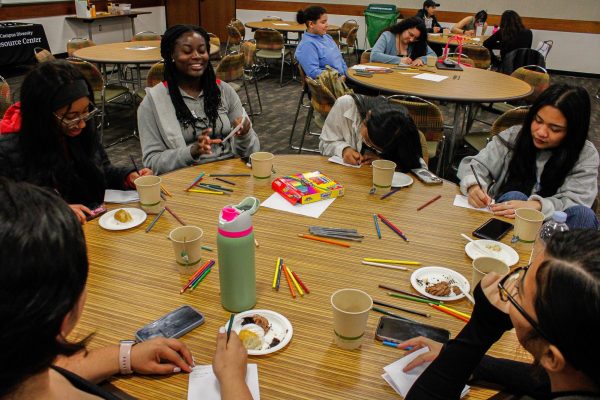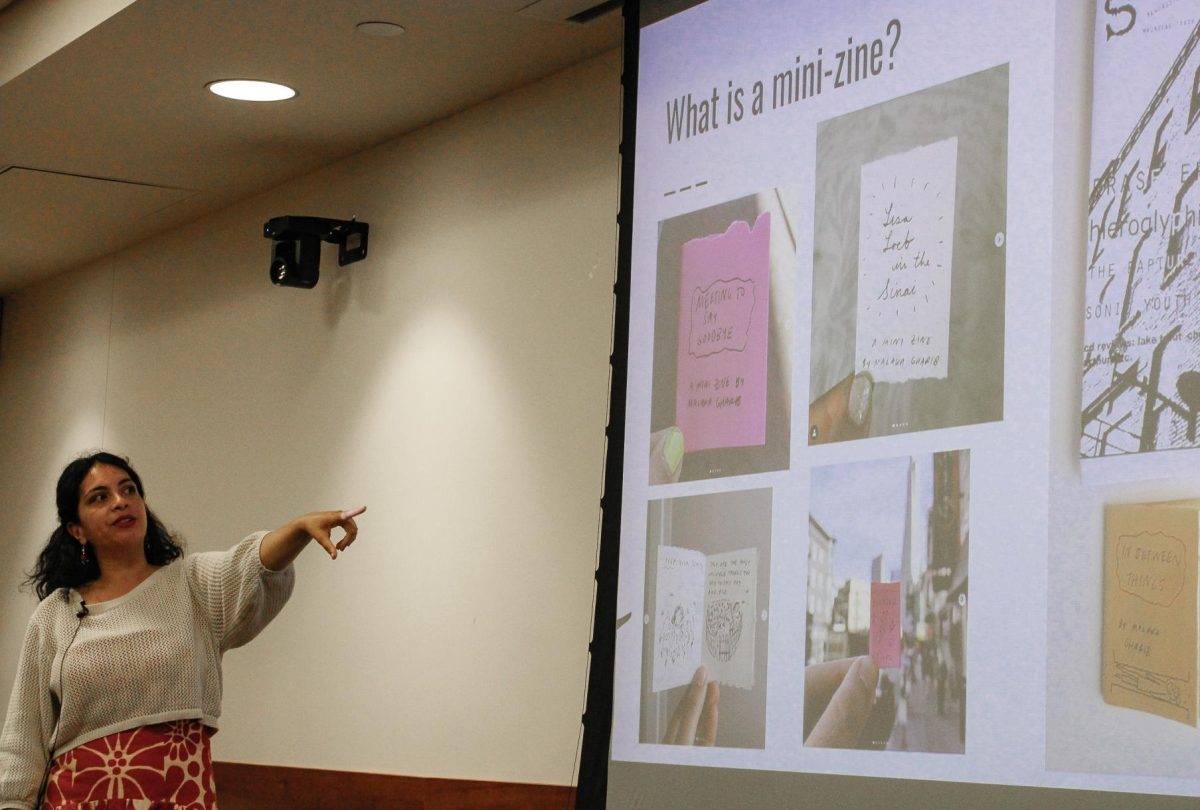Malaka Gharib, the digital editor of the NPR podcast “Life Kit” and an award-winning cartoonist, led a workshop on identity exploration through zines at the Conrad Prebys Aztec Student Union on March 26.
The event, “Identity Unfolded: Zine Narratives and Identity Exploration,” was part of Women’s History Month and invited students to create personal zines. Gharib, a first-generation Filipina Egyptian American, shared her own experiences, highlighting the role of zines in exploring and expressing identity.
Gharib, recognized for graphic storytelling, authored “I Was Their American Dream,” exploring a Filipino Egyptian American heritage, and “It Won’t Always Be Like This,” detailing summers in the Middle East. Cartoon contributions have appeared in The Los Angeles Times, Catapult, The Believer, The Nib, The New York Times and The New Yorker, highlighting diverse narratives, according to the NPR website.
Zines, short for fanzines or magazines, are self-published works that emerged as crucial outlets for subcultures and marginalized voices throughout the 20th century. Characterized by their DIY ethos, zines vary from personal narratives and art to political discourse, enabling anyone to share their story.
Gharib shared experiences with the art form, highlighting its significance for personal and communal expression, as well as its capacity for exploring identity and social issues.
“Zines are a versatile medium to explore any number of topics. Sometimes I use them to explore my feelings as a Filipino mom or about my Egyptian dad,” Gharib said. “Don’t go so hard on yourself. Enjoy it, and know that making mistakes is totally fine.”
Gharib’s shift to zines reflects her quest for a medium that honors complex, personal narratives and the nuances of dual heritage. The workshop highlighted zines as tools for candid identity exploration, blending personal introspection with public expression.
Known for their adaptability and inclusiveness, zines encourage a deep engagement with cultural identity, empowering creators to authentically share their stories.

Gharib also emphasized the importance of infusing humor into zines of serious topics.
“When I wrote (“I Was Their American Dream”), I think I was just letting my freak flag fly, you know, just letting my natural self out,” Gharib said. “When I look back on this book, I cried a lot writing it, and at the end, I realized how angry I was. I had sort of laughed to cope, but now I’ve actually processed those feelings.”
Through this approach, Gharib used zines as a conduit for sharing and understanding diverse experiences, enriching the humor with dialogue on identity.
“What ended up happening was I found humor in my experiences with microaggressions,” Gharib said. “It was ironic how the advice I received, suggesting acting like white people was right and being Filipino was wrong, could be seen in a humorous light.”
Under Gharib’s guidance in the event’s final hour, students crafted diverse zines that emphasized self-expression and identity, fostering animated discussions and boosting self-assurance, which highlighted the impact of zine-making on personal growth and community connection.
Reflecting on the workshop’s impact, Vale Magaña, a graduate student in women’s studies and president of the Feminist Outreach Coalition, emphasized the profound role of zine-making in self-discovery.
“Malaka talked about how she had come to a point in her life where things like racism, she thought, weren’t affecting her, and it took this book writing process for her to realize that she has experienced these microaggressions,” Magaña said. “So, I think using art and journaling as a way of really tapping into yourself and getting to know yourself is where it’s at.”
For more information on Conrad Prebys Aztec Student Union events, visit their website.









